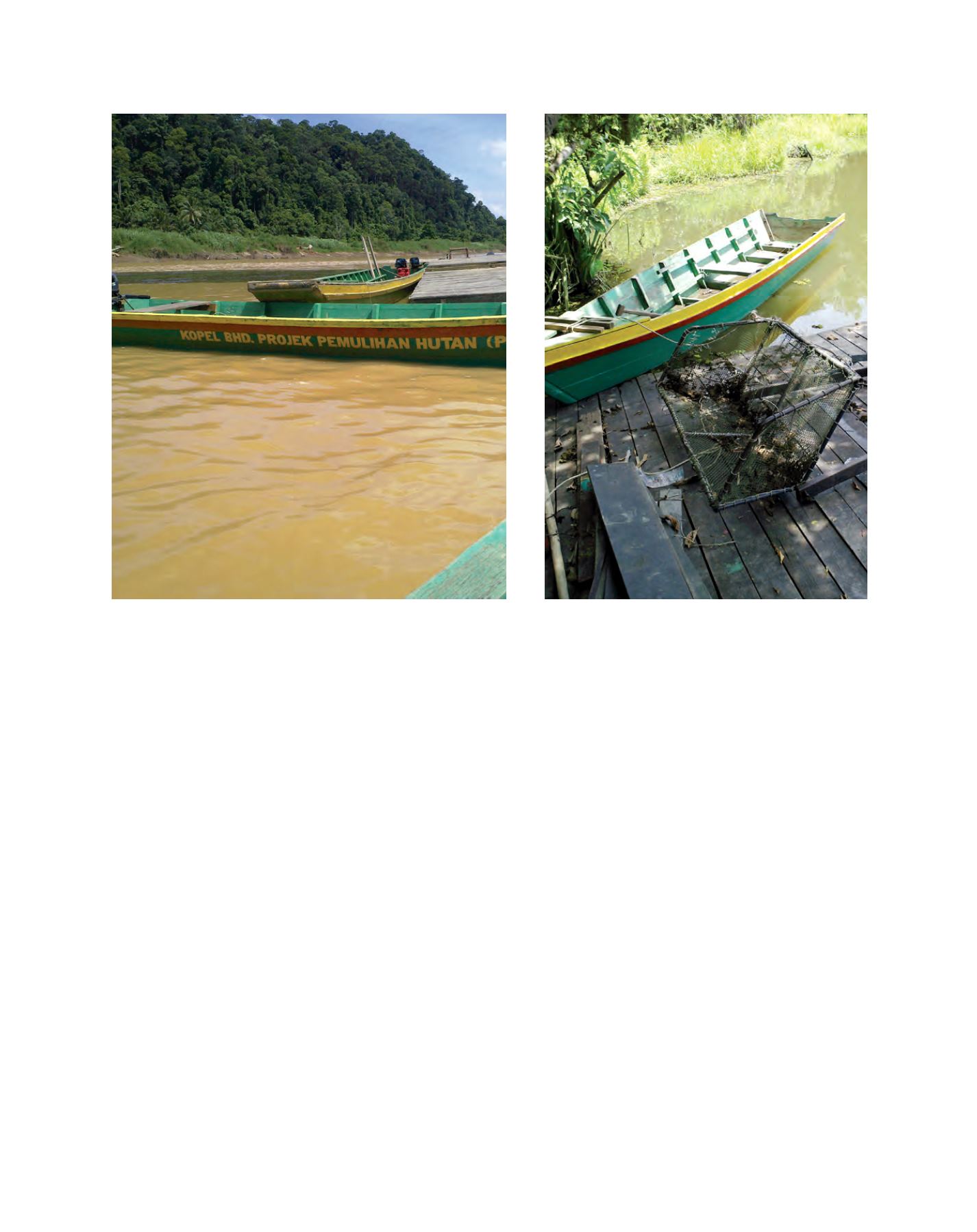

[
] 209
members can control and manage the visits by providing prior infor-
mation and guidelines regarding local values and norms and provide
ecotourism programmes that incorporate Miso Walai homestay and
conservation activities. The second category is known as free independ-
ent tourists (FIT), who may arrive spontaneously at the village and are
more difficult for the KOPEL administration to manage. The average
annual rate of growth of GIT (199.9 per cent) has surpassed that of FIT
(94.1 per cent), indicating this package’s popularity. During the last
decade GIT accounted for 86.6 per cent of visitors, with the rest being
FIT. Overall visitor figures rose annually except in 2002, most likely
due to the SARS bird flu scare in South East Asia.
The success of CBFET at Batu Puteh can be attributed to institu-
tional arrangements that include:
• Friendly and cooperative work cultures and norms among
the households in the community and presence of conflict
resolution mechanisms
• Willingness of relevant Government agencies to decentralize
natural resource management to local communities
• Willingness of corporate entities to financially support CBFET
through their corporate social responsibility programmes and of
domestic and NGOs to lend a hand in facilitating forest resource
conservation activities
• Strategic partnerships among the community with relevant
Government agencies and NGOs with regard to organizing CBFET,
community user rights of forests for ecotourism purposes and the
use of volunteers to strengthen forest conservation and ox-bow lake
restoration programmes.
The establishment of KOPEL and MESCOT was moti-
vated by economic and environmental considerations.
Local youths were looking for new job opportunities that
would not require migrating to urban areas but, due to
a lack of exposure and experience, they needed external
guidance to move forward. In 1997 the WWFM and the
Sabah Ministry of Tourism, Culture and Environment
offered to assist by assigning a facilitator for local people
in the conservation and homestay programmes. The
group assessed the rural opportunities, shared ideas and
prioritized ecotourism as the economic activity of choice.
A proposal paper for a CBFET at Batu Puteh was
prepared to seek funding fromWWF Norway to finance
the initial activities.The society that was initially formed
was converted to a cooperative to amalgamate the avail-
able ecotourism options.
Having gained experience and established a working
relationship with the Sabah Forestry Department,
KOPEL and the local youths then formed a strategic
partnership with the department for forest fire preven-
tion and forest rehabilitation programmes.
Involvement in ox-bow lake rehabilitation occurred as a
result of an infestation of Selviena mollusta, a fast-breeding
weed species found in still lakes. Infestation can cause the
water level in lakes to drop, affecting fishery resources.
Locals developed the idea to use boats with scoops to raise
the weeds out of the lake.
KOPEL was set up to reverse the losses of forests and cultural heritage and to create
economic value and appreciation of the rainforests
Ox-bow lake rehabilitation: locals used boats with scoops to raise
the weeds out of the lake
Image: Mohd Shahwahid
Image: Mohd Shahwahid
















